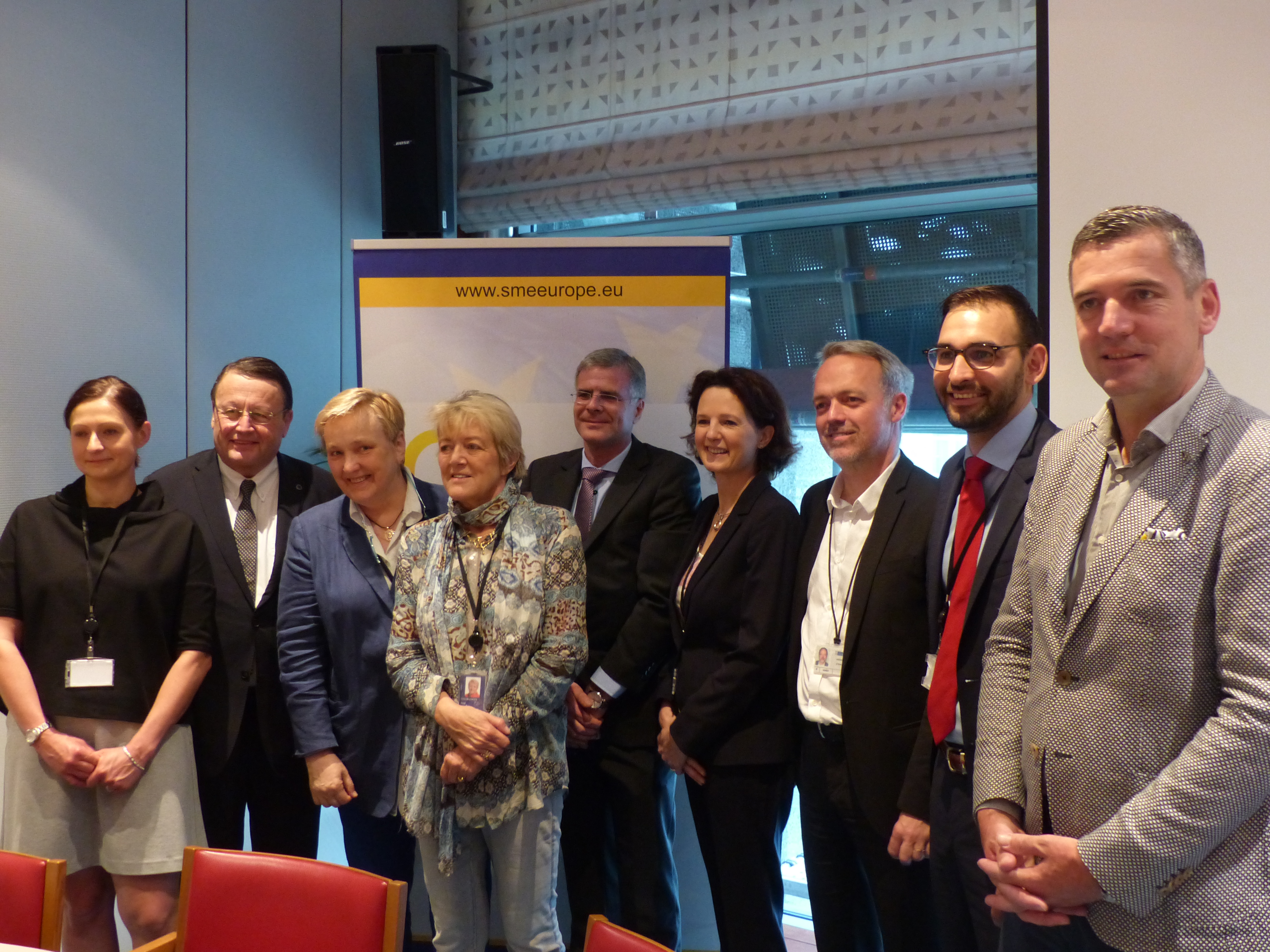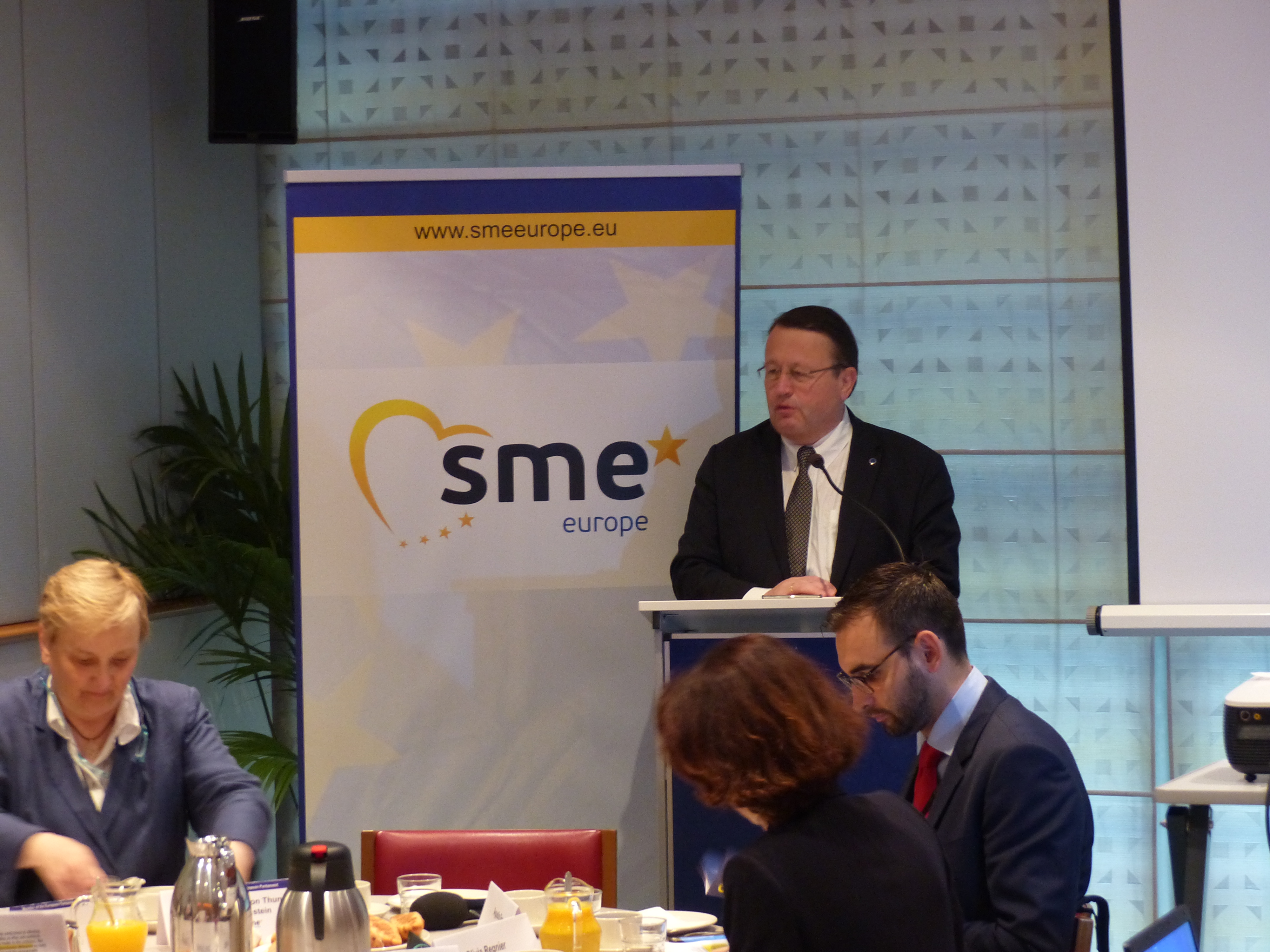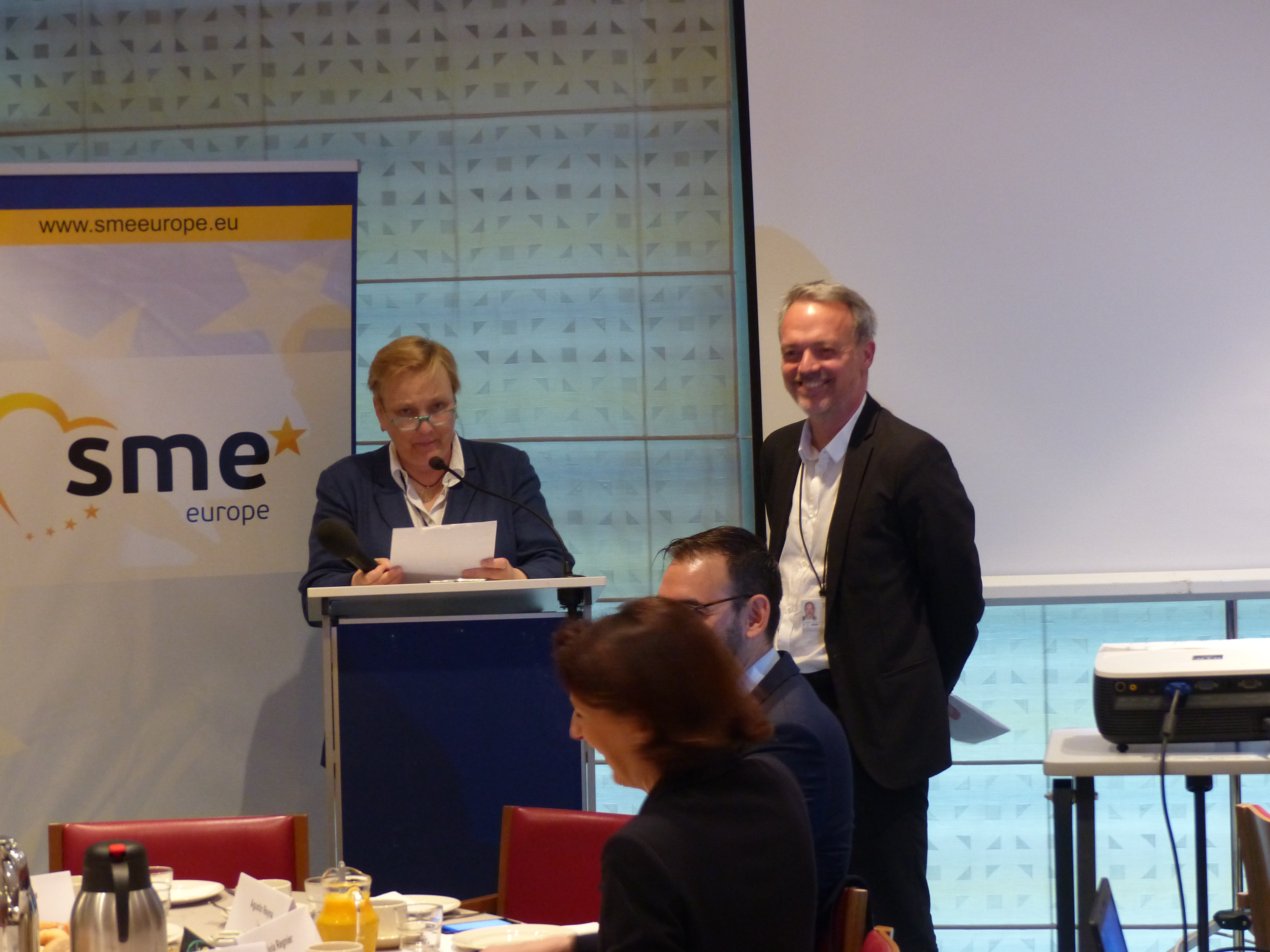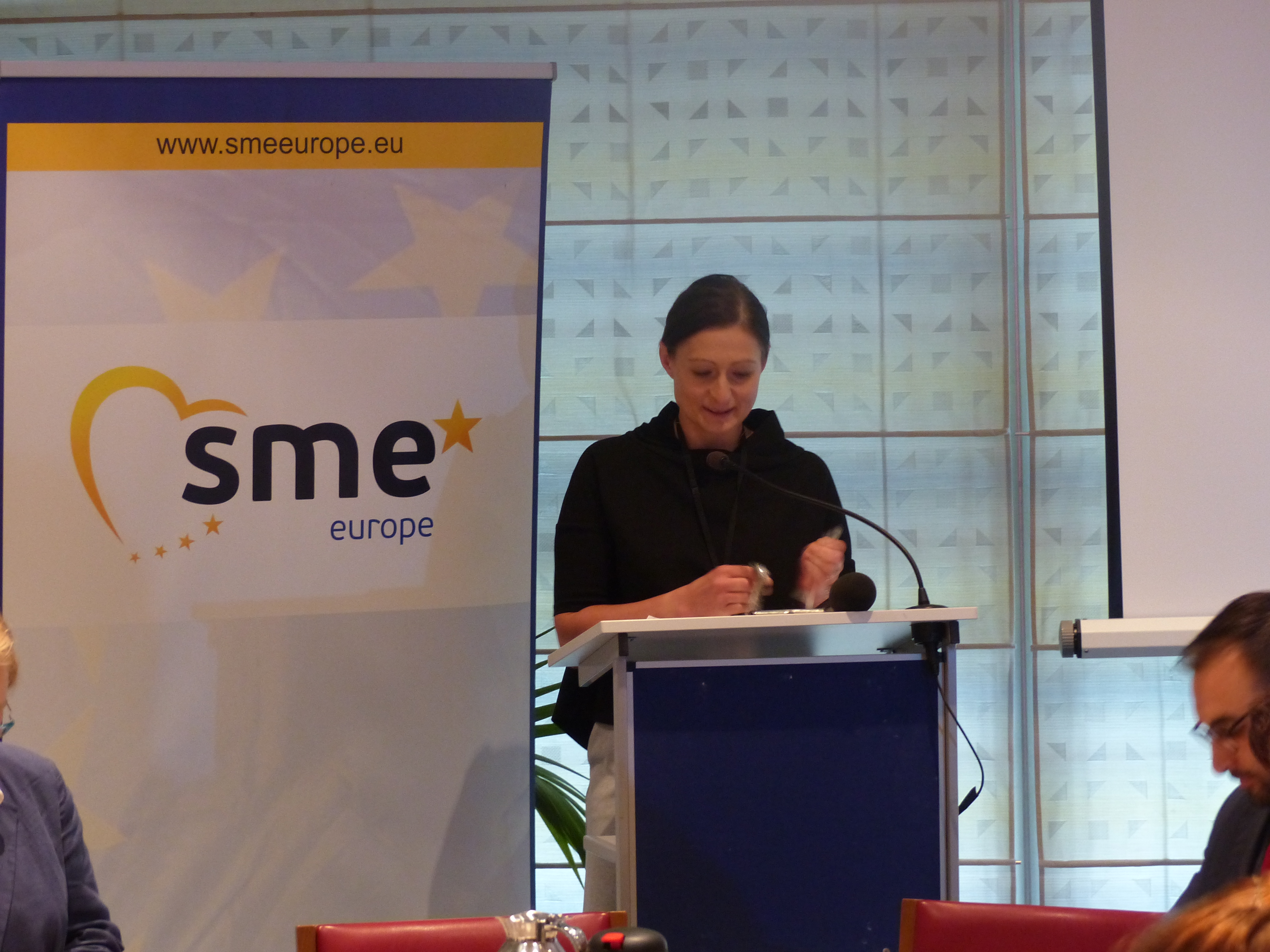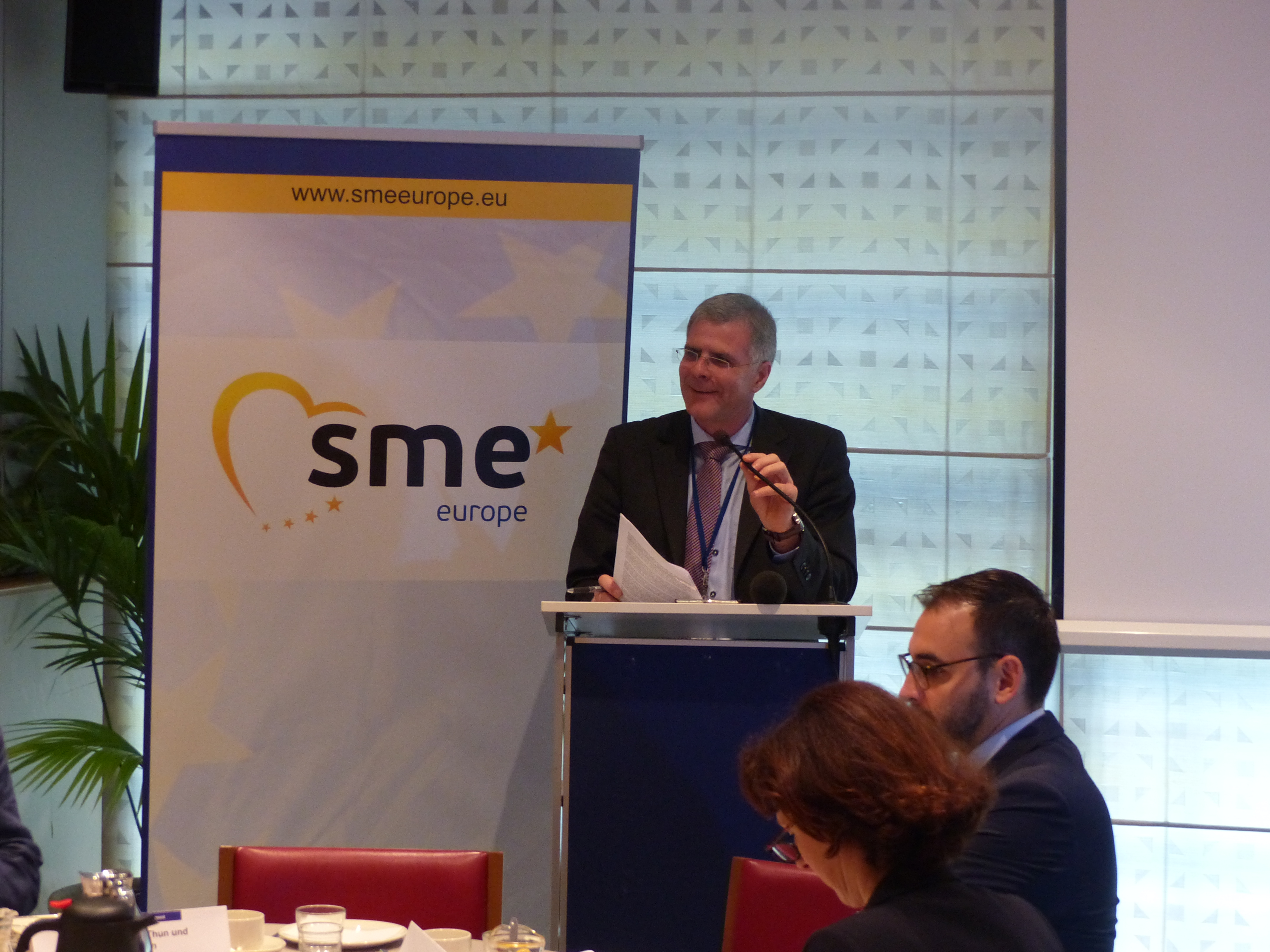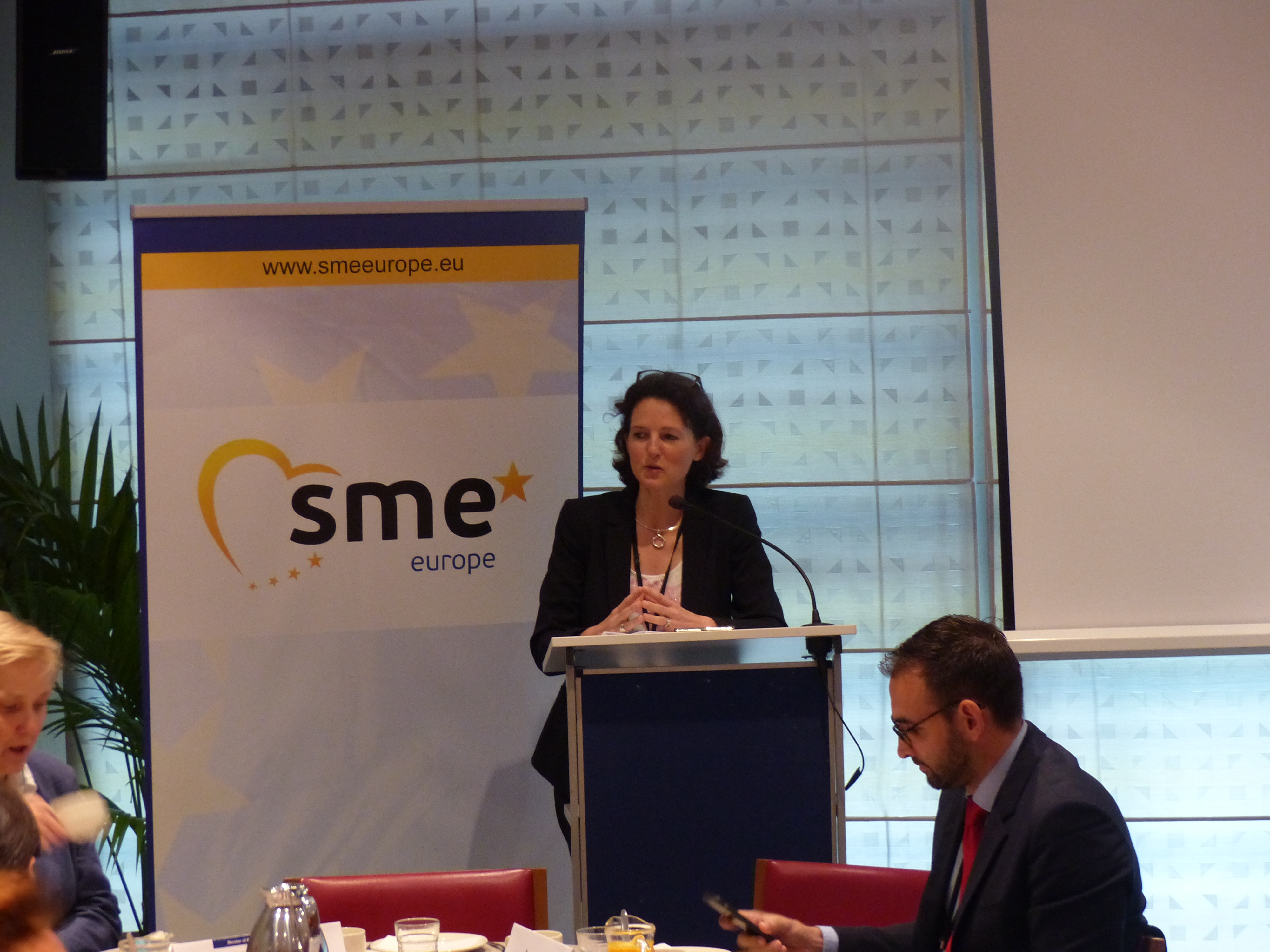Geoblocking and SMEs – How to use the full potential of the Single Market
The Working Breakfast held on June 29th 2017, GEOBLOCKING and SMEs – How to use the full potential of Single Market, was hosted by MEP Roza Gräfin von Thun und HOHENSTEIN. She opened and moderated the discussion. During her speech, she explained what Geo-blocking is and its impact on businesses and consumers, its negative side and how it can be dealt with. She underlined that it is essential to have an open market where consumers can access to better options. She mentioned that EU institutions are working in order to find the most appropriate solutions. She highlighted the importance of cross border trade and added that discrimination regarding geographic location must be stopped. She talked about how important it is to facilitate trade and expressed her readiness to work in order for this to happen and also to limit trade obstacles.
MEP Paul Rubig, Honorary President of SME Europe, addressed issues related to trade restrictions and Geo-blocking. He underlined that internal market is a complex issue and costs need to be well calculated. He brought an example of cancelling roaming charges and how much it can save for European citizens. Similar to that, facilitation in trade can save much for businesses and consumers. His focus was on why consumers and/or businesses have to pay while going through political borders and discussed what can be done in order to facilitate cross border trade issues.
Werner Stengg from the European Commission, expressed that it is important to promote online services increasing the access to online goods. He mentioned that, during negotiations the topic was addressed more like a religious belief rather than being based on scientific facts. He underlined that non-discrimination is an important issue and also discussed some of the commandments such as not mentioning copyright and applicable law. He raised a question related to who might be afraid of the Single Market, discussed merits, problems and risks. He expressed his desire to deal with the issue in a more rational way and with scientific facts.
Following, Joanna Lopatowska from Eurocommerce, brought an example of her personal experience where she had to deal with Geo-blocking, encountering positive and also negative issues. She mentioned that businesses do not usually risk sending parcels oversees as there is lack of trust and high costs. She underlined the importance of applicable law and achieving legal clarity so businesses will not fear to send goods to foreign clients. She expressed that it is important to make an agreement and facilitate trade barriers for people.
Markus Stock, from the Austrian Federal Economic Chamber of the Permanent Representation of Austria to the EU. He started his speech addressing e-commerce, how it grows and the need to cope with it, however he mentioned that it is important to know what type of business we have in mind. He expressed that internal market should be created from the perspective of SMEs and their role, challenges and benefits should be taken into consideration. He said that Geo-blocking should be further analysed and its challenges are not still identified and while doing so, small business perspectives should not be ignored. He mentioned that when being abroad, local rules must be respected and acknowledged. It is important to increase certainty and have clear guidelines while working on this issue. If the business is required to use the local language at least their native language should be permitted too. He ended his speech by declaring that more work and research needs to be done on the topic.
Olivia Regnier from Spotify. Based her contribution to the breakfast on the Spotify, which is already spread worldwide and people can have access from everywhere. She expressed that every country has a different requirement for the company and their policies also vary. As the company has different licences from different countries it causes some problems and challenges. The price also needs to be modified according to the economic situation of each country. Procedures also vary and thus these modifications bring more obstacles for them.
FOR MORE PICTURES PLEASE CLICK
Last but not least, Augustin Reyna, from The European Consumer Organization (BEUC) expressed the importance of clarity of the policy so that it can be easily understood and analysed. Many questions have been raised by the industry regarding the issue. He underlined the importance of applicable law and also mentioned that the issue needs to be better examined as there still may be some concerns without known background and the regulations have to be made based on the consumers perspective looking to and ensure its compatibility with the completion law.

